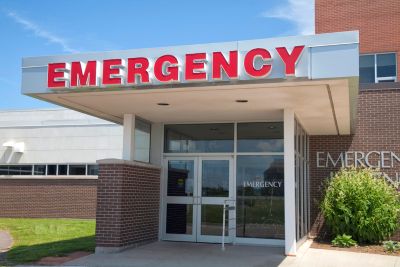A new study has found that needing acute care after hallucinogen use is associated with a significantly increased risk of death within 5 years, especially from suicide, compared with the general population.
Hallucinogen use that leads to an emergency hospital visit or hospital admission is linked to an increased risk of premature death compared to the general population, according new research published in the Canadian Medical Association journal, MAJ. In particular, the risk of death by suicide increased five-fold for those needing acute care after using hallucinogens.
The study, conducted by Canadian researchers at the University of Ottawa, analyzed health records of over 11 million people aged 15 and older living in Ontario, Canada, among whom nearly 8,000 received acute hospital care after hallucinogen use. The researchers noted that prior to their investigation, there were no high-quality studies with large sample sizes that evaluated whether hallucinogen use may increase the risk of death. Hallucinogens include dissociative drugs, like ketamine, and psychedelics, like psilocybin, LSD, and MDMA (ecstasy).

The researchers found that an emergency department visit or hospital admission for acute care involving hallucinogens was associated with a 2.6 times greater risk of death from any cause within 5 years compared with the general population. The risk of premature death from cancer, respiratory disease, and unintentional drug poisoning more than doubled relative to the general population, but the risk of dying from suicide increased more than 5 times.
“In this population-based study of 11.4 million people, acute care for hallucinogens was associated with a markedly increased risk of death compared with the general population of people of the same age and sex,” they wrote. Why this happens has not been well investigated, the researchers noted.
Further, they warned about the lack of research investigating the harms of hallucinogens, observing that “major gaps exist in our understanding of associated risks.” They urged further research on the harms, especially in light of the rapid rise in the use of hallucinogens. The increased use of hallucinogens in the U.S. is especially notable in the range of 6.7% to 10.5% of younger adults aged 19-30 reporting hallucinogen use, according to the 2024 Monitoring the Future Panel Study Annual Report.
The weakness of scientific evidence to date on the safety and effectiveness of psychedelics was the subject of a 2024 analysis by U.S. and European university researchers, published in the British medical journal, The BMJ. They noted that such factors as study designs, short study time frames, and the lack of study participants who have not already taken psychedelics weaken the results of existing psychedelic research findings.
They recommended research to specifically investigate and identify adverse events from psychedelics use, which may have been downplayed when earlier studies were published. “While some of these events were observed during drug development, suboptimal reporting of safety issues in journal publications may have led to underestimation” of the harms, they wrote.
The researchers also expressed concern over the U.S. Food and Drug Administration (FDA) speeding up the drug review and approval process, despite a lack of strong evidence of safety and effectiveness, for hallucinogens designated as breakthrough therapies.
Still further, hallucinogens are psychoactive drugs that cause altered perceptions, thoughts, and moods, raising yet another safety concern. “Mind altering drugs place patients in a state of heightened vulnerability and potentially increased risk of harm,” the researchers wrote.
They cite as an example the allegations of therapists sexually assaulting a user during a clinical trial of MDMA (ecstasy). “That such events occurred in closely monitored clinical trials, where best practices are theoretically ensured, is particularly concerning,” they wrote.
Such adverse events raise even more serious concerns about the street use of hallucinogens, which would likely proliferate if the drugs are eventually approved by the FDA, regardless of whether the approval is limited to supervised settings.
“The fact that psychiatric drugs have failed for many as mental health treatment is no reason to rush into hallucinogens when safety concerns have not been thoroughly researched, especially when studies exist indicating potential increased risks of serious, even deadly outcomes from hallucinogen use,” said Anne Goedeke, president of the National Affairs Office of Citizens Commission on Human Rights.
